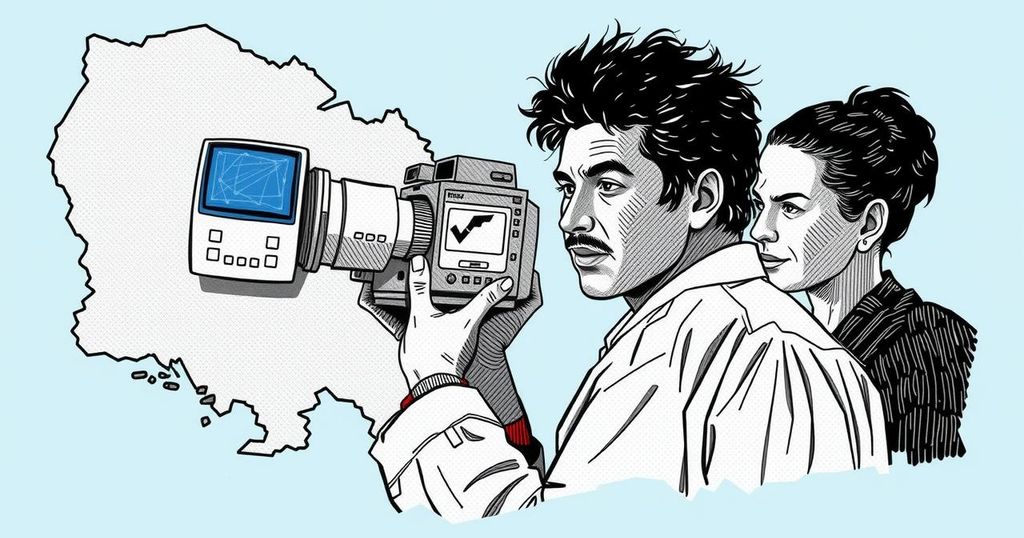Nicaragua intends to ratify a constitutional reform that enhances presidential powers and increases government control over media. The change, requested by President Ortega, aligns with tactics seen in other authoritarian regimes, aiming to suppress dissent and independent journalism significantly. Critics warn that such developments threaten the core principles of democracy and human rights in the country.
Nicaragua is poised to finalize a constitutional reform in January that would expand presidential powers while intensifying state control over media outlets. If enacted, this reform will grant the government authority to restrict media influenced by foreign interests and to punish the dissemination of “false news.” Analysts argue that these modifications mirror trends observed in other authoritarian regimes, such as Cuba and Venezuela. Carlos Jornet, the president of the freedom of the press committee of the Inter American Association, highlights a disturbing pattern in the Americas whereby governments impose such restrictions after undermining judicial and legislative independence.
The proposed changes also seek to prolong President Daniel Ortega’s rule by extending his term from five to six years and transforming the vice president’s role—currently held by his spouse, Rosario Murillo—into a position of “co-president.” Reports indicate that the police and military structures may be enhanced, further consolidating Ortega’s authority in Nicaragua. Following a series of crackdowns, hundreds of journalists have fled the country to escape persecution, including prominent figures arrested after challenging Ortega’s regime in the 2021 elections. Non-governmental organizations allege that some of the 229 political detainees have faced torture and crimes against humanity-like conditions, exacerbating fears for freedom of expression in the nation.
Despite resistance from critics, who assert that the reforms legitimize Ortega’s unchecked power, legislative leaders maintain that the adjustments will be approved without significant opposition. Lucia Pineda Ubau, director of 100% Noticias, has expressed grave concerns that the new constitutional provisions will facilitate government targeting of independent journalism, endangering the media landscape and increasing penalties for disinformation. Similar to Nicaragua, regulations in Cuba have led to stringent sanctions against free speech, accentuating a regional trend towards silencing dissent through legislative means. The United Nations has cautioned that these reforms could critically impact fundamental freedoms and the rule of law in Nicaragua.
Nicaragua’s impending constitutional reform is a significant move that is intended to augment state control over media channels and solidify presidential authority. Observers note that the proposed changes resemble actions taken by authoritarian governments in Latin America, particularly those in Cuba and Venezuela, where arguments against dissent are often cloaked in national security or truth preservation. These reforms follow a broader pattern where governments restrict media freedoms, particularly social media, citing the need to curtail misinformation. Human rights advocates have raised alarms about the repercussions of such legal shifts on independent journalism and personal freedoms in Nicaragua, where there has been a noted surge in repression of dissenting voices in recent years. The international community has responded critically, with organizations pointing to these developments as indicators of declining democratic governance in the region.
In summary, Nicaragua’s forthcoming constitutional amendment serves as another illustration of escalating authoritarianism and media repression in the region. This shift aims to extend President Ortega’s control while undermining independent journalism and dissent. Similar tactics employed by other governments in Latin America reflect a concerning pattern of silencing free expression through legislative means. Such measures raise serious questions about the future of democratic principles and human rights in Nicaragua, with widespread implications for fundamental freedoms.
Original Source: www.voanews.com






